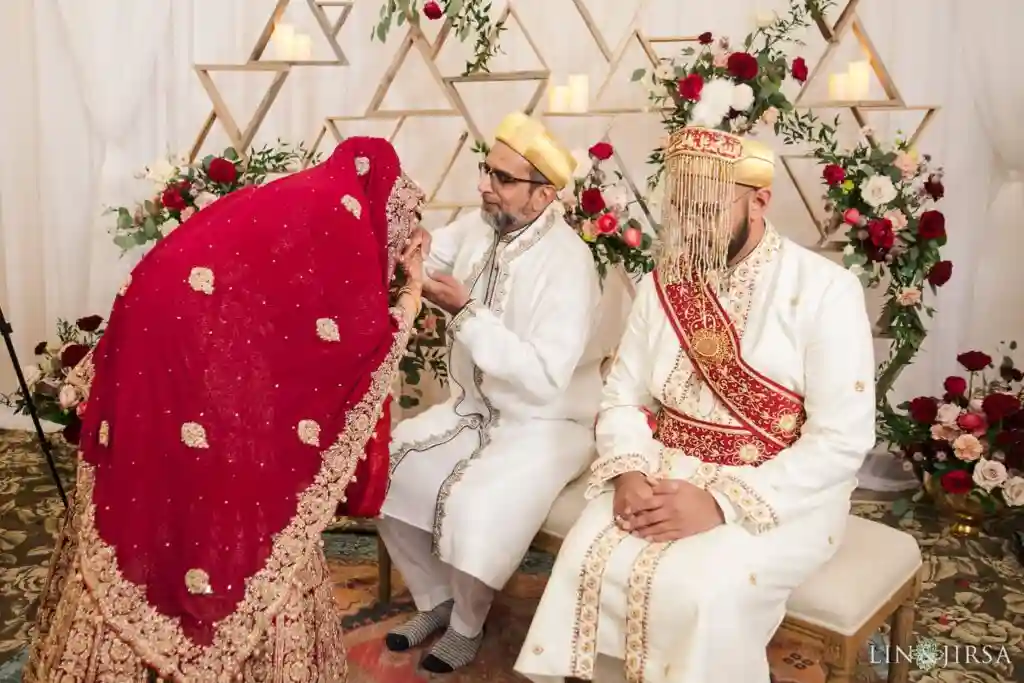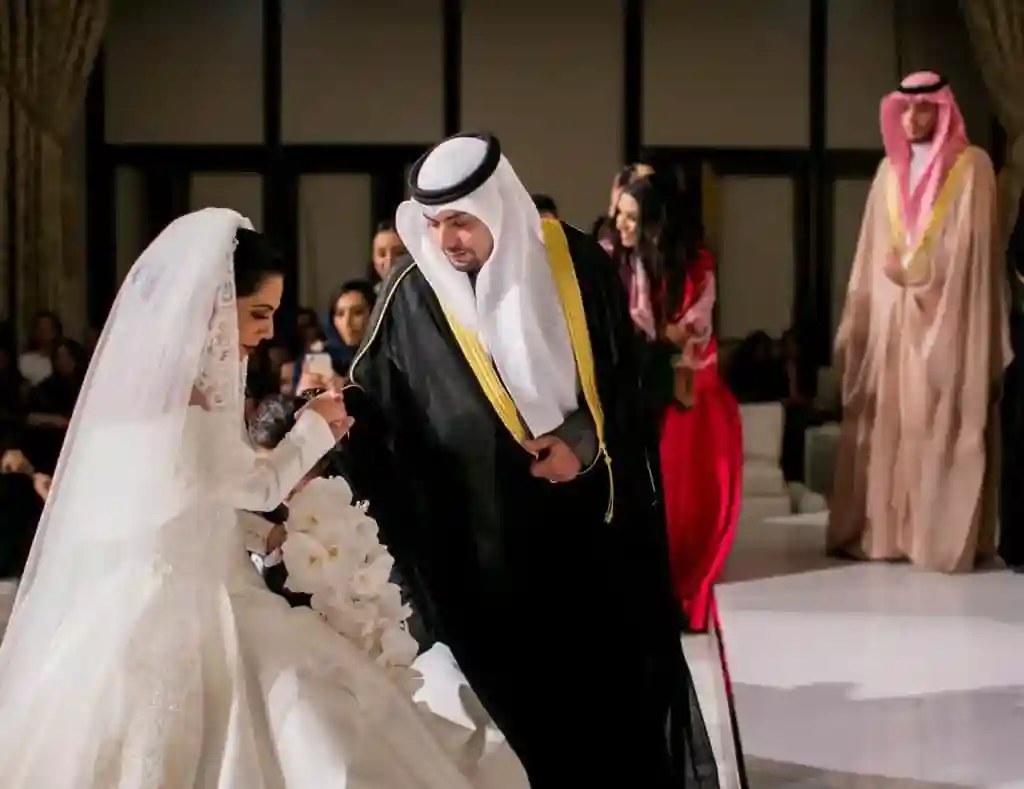Misyar marriage in Saudi Arabia is a special type of Islamic marriage. It is different from normal marriage. In this marriage, the wife gives up some rights. She does not ask for a house from her husband. She also does not ask for money every month.
Many people in Saudi Arabia choose this marriage type. It helps solve money problems. It also gives people more freedom. This guide will tell you everything about Misyar marriage in Saudi Arabia.
What is Misyar Marriage?

Misyar marriage is an Islamic marriage with fewer rules. The word “Misyar” means “walking” in Arabic. This name comes from old times when men traveled a lot.
In Misyar marriage in Saudi Arabia, couples live apart. They meet when they want to. The wife stays with her family. The husband visits her sometimes. This is very different from normal marriage.
Simple Rules of Misyar Marriage
- Wife lives with her own family
- Husband does not pay monthly money
- No need for big wedding party
- Couples can keep it secret
- Both must agree to all rules
- Islamic law must be followed
History of Misyar Marriage in Saudi Arabia

This marriage type is very old. It started hundreds of years ago. Back then, men traveled for business. They needed wives in different cities. Misyar marriage helped them.
Today, Misyar marriage in Saudi Arabia is different. Young people use it for new reasons. They want to get married but have money problems. This marriage type helps them.
Old Times vs Now
Old Times:
- Men traveled for trade
- Needed wives in different places
- Stayed for short time only
- No phones or cars existed
Now:
- People have money problems
- Want freedom in marriage
- Both men and women work
- Life is more expensive
Islamic Law and Misyar Marriage
Islamic law allows Misyar marriage in Saudi Arabia. But it has strict rules. All normal marriage rules must be followed. The only difference is the wife gives up some rights.
Must Have for Valid Marriage
- Both people must agree
- Girl’s father must say yes
- Two people must see the wedding
- Proper Islamic ceremony needed
- Marriage paper must be signed
- Government office registration required
What Islamic Teachers Say
Some Islamic teachers like Misyar marriage. They say it follows Islamic law. It helps people avoid bad relationships. It gives a legal way to marry.
Other teachers do not like it. They think it hurts women. They say it goes against marriage purpose and about children from these marriages.
Types of Misyar Marriage in Saudi Arabia
There are three main types of Misyar marriage in Saudi Arabia. Each type has different rules. People choose based on their needs.
Full Misyar Marriage
- Wife gives up all money rights
- No shared house needed
- Husband visits when he wants
- Very few responsibilities
- Most common type in cities
Half Misyar Marriage
- Wife gives up some rights only
- Maybe keeps money rights
- Or maybe keeps house rights
- Can change rules later
- Good for testing period
Secret Misyar Marriage
- Nobody knows about marriage
- Only required people present
- No wedding party at all
- Families do not know
- Most controversial type
Who Chooses Misyar Marriage?
Many different people choose Misyar marriage in Saudi Arabia. Each person has their own reasons.
Men Who Choose It
- Young men with little money
- Older men who want second wife
- Men who travel for work
- Divorced men starting again
- Students who cannot afford normal marriage
Women Who Choose It
- Divorced women with children
- Older single women
- Women who work and earn money
- Widows who want companionship
- Women who want independence
Age Groups
Most people who choose Misyar marriage are between 25 and 45 years old. Younger people usually wait for normal marriage. Older people may not need marriage anymore.
Why People Choose Misyar Marriage
There are many reasons why people pick Misyar marriage in Saudi Arabia. Most reasons are about money and freedom.
Money Problems
- Normal marriage costs too much
- House prices are very high
- Wedding parties are expensive
- Gifts and gold cost a lot
- Young people earn less money
Freedom Reasons
- Want to keep own house
- Do not want daily duties
- Like independence in life
- Prefer flexible schedule
- Avoid family pressure
Social Changes
- Women work more now
- People marry later in life
- Families are smaller
- Traditional ways changing
- More education for all
Good Things About Misyar Marriage
Misyar marriage in Saudi Arabia has many good points. These benefits attract different people.
Religious Benefits
- Follows Islamic law completely
- Protects from sin
- Gets blessing from Allah
- Keeps people on right path
- Satisfies religious needs
Money Benefits
- Costs much less money
- No expensive wedding needed
- No house rent to pay
- Wife keeps her own money
- Husband saves a lot
Personal Benefits
- Gives emotional support
- Provides companionship
- Maintains individual freedom
- Allows career focus
- Reduces family stress
Social Benefits
- Helps solve marriage problems
- Reduces single people number
- Gives legal relationship status
- Prevents social problems
- Adapts to modern life
Problems with Misyar Marriage
Not everyone likes Misyar marriage. It has some serious problems too.
Problems for Women
- No financial security
- Less legal protection
- Society may judge badly
- Difficult if husband dies
- Hard to get money later
Problems for Children
- Father may not visit often
- Less stable home life
- Confusion about family
- Money problems possible
- Social stigma from others
Social Problems
- Goes against tradition
- May encourage temporary marriages
- Reduces women’s status
- Creates unfair situations
- Weakens family values
Religious Concerns
- Some scholars disagree
- May not be true marriage
- Could encourage misuse
- Questions about children’s rights
- Debates about Islamic correctness
Legal Rules in Saudi Arabia
Saudi Arabia has specific laws for all marriages. Misyar marriage in Saudi Arabia must follow these rules.
Required Documents
- Saudi ID card or residency
- Medical test results
- Father’s written permission
- Witness statements
- Completed marriage forms
- Payment of government fees
Government Process
- Visit marriage office
- Bring all required papers
- Pay the fees
- Islamic official performs ceremony
- Get official marriage certificate
- Register in government records
Age Requirements
Both people must be 18 years or older. This is the law in Saudi Arabia. No exceptions are allowed. Officials check IDs carefully.
Other Rules
- Both must be Muslim
- Cannot be married to others (unless polygamy allowed)
- Must be mentally healthy
- No family relationship too close
- Must understand what they are doing
Misyar vs Normal Marriage
Understanding differences helps people make better choices. Here are the main differences.
Normal Marriage Rules
- Live together in same house
- Husband pays all expenses
- Big wedding party usual
- Extended family involved
- Wife has full rights
- Public celebration common
Misyar Marriage Rules
- Live in separate houses
- Wife pays her own expenses
- Small or no wedding party
- Less family involvement
- Wife gives up some rights
- May be kept private
Which is Better?
Neither is better or worse. Each fits different situations. Young people with money often choose normal marriage. Older people or those with money problems may prefer Misyar.
Current Situation in Saudi Arabia
Misyar marriage in Saudi Arabia is becoming more common. More people know about it now.
Growing Numbers
- More young people choose it
- Economic problems increase interest
- Social media spreads information
- Religious leaders discuss it more
- Government recognizes it legally
Where It Happens Most
- Big cities like Riyadh
- Jeddah and Dammam
- University areas
- Business districts
- Areas with many young people
Who Talks About It
- Islamic scholars debate it
- Social media discusses it
- Newspapers write about it
- Television shows mention it
- Young people share experiences
How to Get Misyar Marriage
Getting Misyar marriage in Saudi Arabia follows specific steps. People must be careful and follow all rules.
Before Starting
- Learn about Islamic law
- Talk to religious teacher
- Discuss with family
- Think about future plans
- Consider all consequences
Finding a Partner
- Through family introductions
- Religious community connections
- Marriage websites and apps
- Social circles and friends
- Professional matchmakers
Legal Steps
- Gather all required documents
- Visit government marriage office
- Complete official forms
- Pay required fees
- Have Islamic ceremony
- Get marriage certificate
After Marriage
- Keep marriage certificate safe
- Follow agreed rules
- Communicate regularly with spouse
- Remember rights can be restored
- Plan for possible changes
Rights and Responsibilities
Even in Misyar marriage, both people have rights and duties. Some are different from normal marriage.
Wife’s Rights
- Right to kind treatment
- Right to privacy
- Right to change her mind about waived rights
- Right to divorce if needed
- Right to inheritance
- Right to have children
Husband’s Rights
- Right to companionship
- Right to respect
- Right to privacy
- Right to faithful wife
- Right to reasonable access
- Right to divorce if needed
Shared Responsibilities
- Follow Islamic teachings
- Be honest with each other
- Respect the agreement
- Care for any children
- Maintain confidentiality if agreed
- Support each other emotionally
Children and Misyar Marriage
Children from Misyar marriage in Saudi Arabia have full rights. They are legitimate under Islamic law and Saudi law.
Children’s Rights
- Full legal recognition
- Right to father’s name
- Right to inheritance
- Right to financial support
- Right to education
- Right to medical care
Parental Duties
- Both parents must care for children
- Father must provide financially
- Mother has custody rights
- Both responsible for education
- Religious upbringing required
- Emotional support necessary
Money Matters
Money issues in Misyar marriage are different from normal marriage. People need to understand this clearly.
During Marriage
- Wife usually pays her own expenses
- Husband may give gifts sometimes
- No monthly allowance required
- Medical expenses shared sometimes
- Children’s costs are father’s responsibility
- Each keeps their own income
If Marriage Ends
- Wife cannot claim unpaid allowances
- Property division may be complicated
- Children’s support continues
- Inheritance rights remain
- Gifts given remain with receiver
- Court may decide disputed matters
Different Opinions About Misyar Marriage
People in Saudi Arabia have different views about Misyar marriage. This creates ongoing discussions.
Supporters Say
- It follows Islamic law
- Helps solve social problems
- Gives people more choices
- Prevents unlawful relationships
- Adapts religion to modern life
- Respects women’s decisions
Critics Say
- It may harm women
- Goes against marriage purpose
- Creates social problems
- May be misused by men
- Weakens family structure
- Causes confusion about Islam
Middle Ground
Some people think Misyar marriage is okay sometimes. They say it depends on the situation. It may help some people but not others.
Impact on Saudi Society
Misyar marriage in Saudi Arabia affects society in various ways. The effects are still being studied.
Positive Effects
- Reduces unmarried population
- Provides legal alternatives
- Adapts to economic reality
- Gives women more choices
- Prevents social problems
- Modernizes traditional practices
Negative Effects
- May reduce women’s status
- Creates confusion about marriage
- Weakens traditional family
- Causes disagreements in society
- Makes some religious scholars worry
- Creates different types of marriage
Long-term Changes
Society is still adapting to Misyar marriage. It will take time to see all effects. Future generations may view it differently.
Advice for Couples
People considering Misyar marriage in Saudi Arabia should think carefully. Here is helpful advice.
Before Deciding
- Study Islamic teachings thoroughly
- Consult trusted religious scholars
- Discuss with family members
- Consider financial implications
- Think about future goals
- Evaluate personal readiness
Choosing a Partner
- Look for religious commitment
- Check family background
- Ensure shared values
- Discuss expectations clearly
- Consider compatibility factors
- Verify legal eligibility
Making It Work
- Communicate regularly and honestly
- Respect agreed boundaries
- Be flexible when needed
- Plan for changing circumstances
- Maintain religious obligations
- Seek help when problems arise
Common Questions
Many people have questions about Misyar marriage in Saudi Arabia. Here are simple answers.
Is It Really Islamic?
Most Islamic scholars say yes. It meets basic Islamic marriage requirements. The wife chooses to give up some rights. This is her decision.
Can the Wife Change Her Mind?
Yes. She can ask for her rights back anytime. The husband must then provide them. This makes the marriage more like normal marriage.
What About Divorce?
Divorce rules are the same as normal marriage. Both people can seek divorce. Islamic law applies to the process.
Are the Children Legal?
Yes. Children have full rights. They inherit from both parents. They have the father’s family name.
Can Foreigners Do This?
Foreigners in Saudi Arabia can have Misyar marriage. They must follow the same rules. Their countries may not recognize it though.
Future of Misyar Marriage
The future of Misyar marriage in Saudi Arabia depends on many factors. Society continues to change.
Likely Changes
- More legal clarity expected
- Better protection for women
- Clearer religious guidance
- More social acceptance
- Improved procedures
- Better education about rights
Challenges Ahead
- Balancing tradition with modernity
- Protecting vulnerable people
- Maintaining Islamic principles
- Addressing social concerns
- Creating fair regulations
- Building community consensus
Global Influence
Other Muslim countries watch Saudi Arabia. They may adopt similar practices. International Islamic law may be affected.
Conclusion
Misyar marriage in Saudi Arabia offers an alternative to traditional marriage. It helps people with money problems and those wanting more freedom. This Islamic marriage follows religious law but has modified rules. While supporters praise its flexibility and religious validity, critics worry about women’s rights and social impact. The practice continues growing as Saudi society adapts to modern challenges. Anyone considering this option should consult religious scholars and understand legal requirements before deciding.






